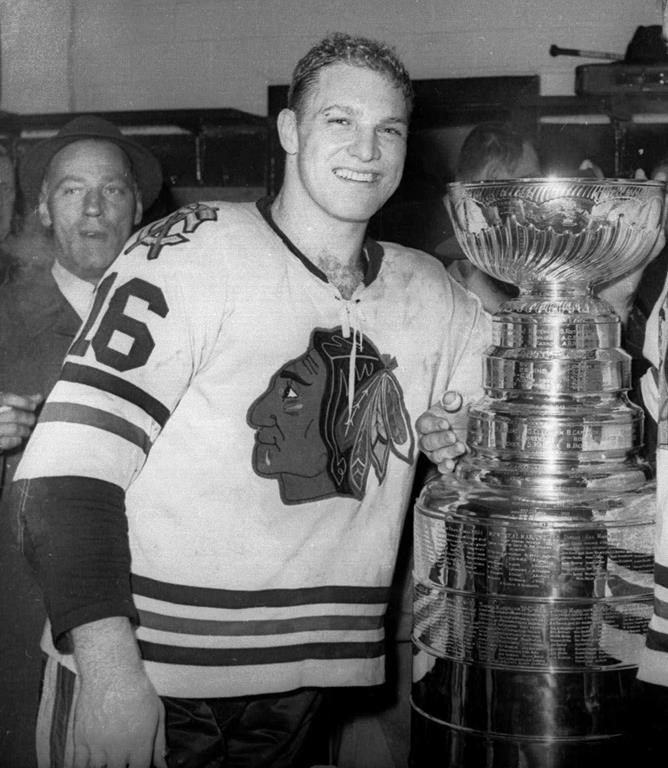Hockey’s Golden Jet was a tarnished human being
Read this article for free:
or
Already have an account? Log in here »
To continue reading, please subscribe:
Monthly Digital Subscription
$0 for the first 4 weeks*
- Enjoy unlimited reading on winnipegfreepress.com
- Read the E-Edition, our digital replica newspaper
- Access News Break, our award-winning app
- Play interactive puzzles
*No charge for 4 weeks then price increases to the regular rate of $19.00 plus GST every four weeks. Offer available to new and qualified returning subscribers only. Cancel any time.
Monthly Digital Subscription
$4.75/week*
- Enjoy unlimited reading on winnipegfreepress.com
- Read the E-Edition, our digital replica newspaper
- Access News Break, our award-winning app
- Play interactive puzzles
*Billed as $19 plus GST every four weeks. Cancel any time.
To continue reading, please subscribe:
Add Free Press access to your Brandon Sun subscription for only an additional
$1 for the first 4 weeks*
*Your next subscription payment will increase by $1.00 and you will be charged $16.99 plus GST for four weeks. After four weeks, your payment will increase to $23.99 plus GST every four weeks.
Read unlimited articles for free today:
or
Already have an account? Log in here »
Hey there, time traveller!
This article was published 31/01/2023 (1043 days ago), so information in it may no longer be current.
When a noteworthy figure in sports or entertainment dies, what inevitably follows is an examination of a life and career; more often than not, the reflection is cast as a celebration of the exploits of a departed hero.
The passing of hockey star Bobby Hull prompts rather a more complicated question. For as much as he is considered to have been a legend on the ice, history has revealed him to have been a deeply troubled, and troubling, individual away from the sports arena.
Mr. Hull, who died Monday at the age of 84, compiled a list of on-the-ice accomplishments that would place him among the game’s all-time greatest players. He was the just the third National Hockey League player to score 50 goals in a season — a feat he matched or eclipsed four more times — and led the league in goal-scoring seven times.
He, along with Chicago Black Hawks teammate Stan Mikita, ushered in the era of curved hockey-stick blades and, in the process, fundamentally changed the way the game was played. The velocity of his slapshot prompted a revolution in the manner in which goaltenders protect themselves.

In 1961, he helped bring the Chicago team its first Stanley Cup in 23 years (it wouldn’t win another until 2010). He was inducted into the Hockey Hall of Fame in 1983.
For fans of hockey who call Winnipeg home, Mr. Hull played a pivotal role in bringing the top-level professional game to their town. His decision in 1972 — rightly disillusioned by inadequate compensation being paid to hockey’s top stars by the NHL’s wealthy but penurious team owners — to sign a multimillion-dollar contract with the Winnipeg Jets of the World Hockey Association gave the upstart league immediate credibility and inspired many other NHL stars to make a similar jump.
His performance on the ice as “the Golden Jet,” particularly while in the company of Swedish-import linemates Ulf Nilsson and Anders Hedberg, was the stuff of sporting legend. He brought championships to Winnipeg and, as the WHA was eventually absorbed by the more established league, it could fairly be argued that NHL hockey’s presence in this city is a direct result of Mr. Hull’s having decided to play here.
Off the ice, however, the man long considered one of hockey’s brightest lights was revealed to have been a dark and menacing presence. Reports of spousal abuse, sexual misconduct and alcoholism became ever more frequent and widely circulated; by the time the “Me Too” era forced a reckoning on abusive men in positions of power, Mr. Hull’s star had long since been tarnished and organizations, as well as many fans, that had once celebrated his glory essentially — and, it could be argued, rightly — turned their backs on him.
Public appearances later in his life were punctuated by unfortunate utterances such as racist remarks to a Russian newspaper in 1998 that included the observation that Nazi dictator Adolf Hitler had “some good ideas (but) just went a little too far.” (Mr. Hull filed suit against the English-language Moscow Times, but the paper stood by its reporting).
All of which leaves followers of sport and observers of societal evolution with a conflicted set of circumstances to consider when reflecting on the life of Mr. Hull. His impact on the sporting firmament, both locally and in the broader hockey context, is both considerable and undeniable. In that realm, he will very likely continue to be applauded.
His much less meritorious legacy as a human being will necessarily mute those celebrations. Long gone are the days when celebrity status and fan adulation could be wielded as a shield against consequences.
History
Updated on Tuesday, January 31, 2023 7:19 PM CST: Corrects Chicago Blackhawks name










